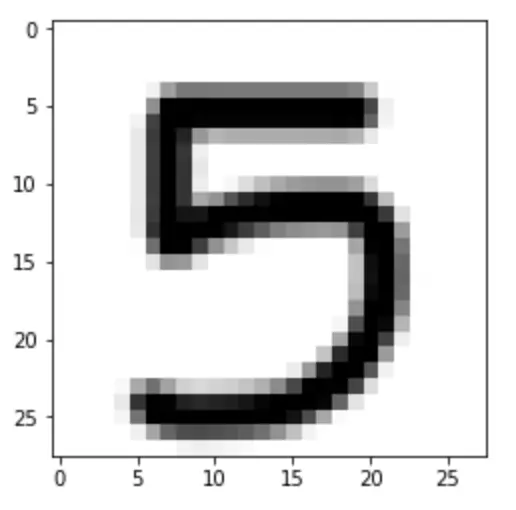 Technology peripherals
Technology peripherals
 It Industry
It Industry
 A Beginner's Guide to Keras: Digit Recognition in 30 Minutes
A Beginner's Guide to Keras: Digit Recognition in 30 Minutes
A Beginner's Guide to Keras: Digit Recognition in 30 Minutes
This article details building a Keras model for handwritten digit recognition using a Convolutional Neural Network (CNN) and the MNIST dataset. Let's rephrase it for clarity and improved flow.

Building a Handwritten Digit Recognizer with Keras
This tutorial demonstrates creating a model to recognize handwritten digits using Python's Keras library, a high-level API that simplifies building and training neural networks. We'll leverage the power of Convolutional Neural Networks (CNNs) and the widely used MNIST dataset.
Understanding the Approach
Our model employs a CNN, a particularly efficient architecture for image classification. Unlike traditional neural networks, CNNs process data in a 3D array (x, y coordinates and color), making them ideal for image data. The MNIST dataset, containing 60,000 training and 10,000 testing examples of handwritten digits, provides the necessary labeled data for training.
Artificial Neural Networks (ANNs) and CNNs
An ANN is a mathematical model transforming input data into output through hidden layers, each layer representing a probability. Training involves adjusting weights and biases based on errors, allowing the network to learn patterns.
CNNs offer a significant advantage for image processing. Their 3D array structure means each hidden layer node connects to only a small input region, dramatically increasing efficiency compared to traditional ANNs. Key CNN layers include convolutional layers (feature extraction), pooling layers (feature reduction), flattening layers (dimensionality reduction), and a final classification layer.


Working with the MNIST Dataset
The MNIST dataset is readily available within Keras. We load the training and testing data using mnist.load_data(). Visualizing sample digits helps understand the data structure:
1 2 3 4 5 6 7 |
|

The training and testing sets have dimensions (60000, 28, 28) and (10000, 28, 28) respectively, indicating 28x28 pixel images.
Data Preprocessing
Before model creation, data needs preprocessing:
- Reshaping: Images are reshaped to (M x N x 1) format using
.reshape(). - Normalization: Pixel values (0-255) are normalized to 0-1 by dividing by 255.
- One-Hot Encoding: The dependent variable (
y_train,y_test) is converted to a binary class matrix usingto_categorical()for compatibility with the model's output.
1 2 3 4 5 6 7 |
|
Model Design and Training
Our CNN model is built sequentially:
- Convolutional Layers: Extract features from the input images.
- Pooling Layer: Reduces dimensionality and computational cost.
- Dropout Layer: Prevents overfitting.
- Flatten Layer: Converts the multi-dimensional output to a 1D array.
- Dense Layers: Perform final classification.
1 2 3 4 5 |
|
The model is compiled using sparse_categorical_crossentropy loss (for integer labels), the Adam optimizer, and accuracy as the metric. Training is performed using .fit(), specifying epochs and batch size. The trained model is saved for later use.
1 2 3 4 5 6 7 8 9 10 11 12 13 |
|
Testing with a Custom Image
To test the model, we load a custom handwritten digit image, preprocess it (convert to grayscale, reshape, normalize), load the saved model, and use .predict() to get the classification.
1 2 3 |
|

Conclusion
This tutorial provides a foundational understanding of building a handwritten digit recognition model using Keras and CNNs. While achieving high accuracy (e.g., >99%), further improvements are possible through model parameter tuning, data augmentation, and exploring more advanced CNN architectures. The provided FAQs offer further insights into the concepts involved.
The above is the detailed content of A Beginner's Guide to Keras: Digit Recognition in 30 Minutes. For more information, please follow other related articles on the PHP Chinese website!

Hot AI Tools

Undresser.AI Undress
AI-powered app for creating realistic nude photos

AI Clothes Remover
Online AI tool for removing clothes from photos.

Undress AI Tool
Undress images for free

Clothoff.io
AI clothes remover

Video Face Swap
Swap faces in any video effortlessly with our completely free AI face swap tool!

Hot Article

Hot Tools

Notepad++7.3.1
Easy-to-use and free code editor

SublimeText3 Chinese version
Chinese version, very easy to use

Zend Studio 13.0.1
Powerful PHP integrated development environment

Dreamweaver CS6
Visual web development tools

SublimeText3 Mac version
God-level code editing software (SublimeText3)

Hot Topics
 Building a Network Vulnerability Scanner with Go
Apr 01, 2025 am 08:27 AM
Building a Network Vulnerability Scanner with Go
Apr 01, 2025 am 08:27 AM
This Go-based network vulnerability scanner efficiently identifies potential security weaknesses. It leverages Go's concurrency features for speed and includes service detection and vulnerability matching. Let's explore its capabilities and ethical
 CNCF Arm64 Pilot: Impact and Insights
Apr 15, 2025 am 08:27 AM
CNCF Arm64 Pilot: Impact and Insights
Apr 15, 2025 am 08:27 AM
This pilot program, a collaboration between the CNCF (Cloud Native Computing Foundation), Ampere Computing, Equinix Metal, and Actuated, streamlines arm64 CI/CD for CNCF GitHub projects. The initiative addresses security concerns and performance lim
 Serverless Image Processing Pipeline with AWS ECS and Lambda
Apr 18, 2025 am 08:28 AM
Serverless Image Processing Pipeline with AWS ECS and Lambda
Apr 18, 2025 am 08:28 AM
This tutorial guides you through building a serverless image processing pipeline using AWS services. We'll create a Next.js frontend deployed on an ECS Fargate cluster, interacting with an API Gateway, Lambda functions, S3 buckets, and DynamoDB. Th
 Top 21 Developer Newsletters to Subscribe To in 2025
Apr 24, 2025 am 08:28 AM
Top 21 Developer Newsletters to Subscribe To in 2025
Apr 24, 2025 am 08:28 AM
Stay informed about the latest tech trends with these top developer newsletters! This curated list offers something for everyone, from AI enthusiasts to seasoned backend and frontend developers. Choose your favorites and save time searching for rel





